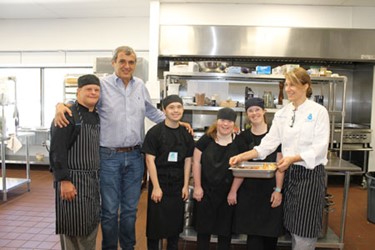Want To Start Fixing Biopharma's Reputation? Let's Start By Sharing More Biopharma Brightspots

By Rob Wright, Chief Editor, Life Science Leader
Follow Me On Twitter @RfwrightLSL

If you work in the biopharmaceutical industry, then it is likely you’ve heard that our industry’s reputation with the American people, according to a recent Gallup Poll, is at an all-time low. Worse yet, out of 25 industries which includes the federal government and all its charades, we (i.e., pharmaceuticals) came in dead last. And let’s be honest. Pharmaceuticals includes biotech, cell and gene therapy, and precision medicine companies, because the average American isn’t likely able to distinguish between companies that make large versus small molecule therapeutics. They just know that we make what they’ve been told are very expensive treatments, they shouldn’t be happy about it, and they shouldn’t like us. Forget that we’ve cured hepatitis C, cured half of all cancers, and created gene therapies that are restoring sight. And when you really start to think about it, doesn’t it sound rather (to use BIO chairman Jeremy Levin’s word) “ridiculous” that the American people hold more positive perceptions for the industries that entertain and educate us than those working to give them the life with which they are able to enjoy entertainment and education? Well, as I’ve heard many a manager say, “It is what it is.” And we can either continue business as usual and cry “sour grapes,” or we can do something about it, and one thing we can do is to start sharing stories of the good some of the people in our industry do — just as part of their everyday. In that spirit, I’d like to share a little-known story about one of our industry’s executives, and how he’s making a difference.
Special Needs Need Jobs Too
Antoine Yver, M.D., is the EVP and global head of R&D at Daiichi Sankyo (DSI). Born and educated in France, Dr. Yver spent nine years as a pediatric oncologist in Paris before breaking into biopharma as a clinical research director in 1990. His career journey includes positions of increasing responsibility with Aventis, J&J, Schering-Plough, Merck, AstraZeneca, and most recently, DSI. Along life’s journey, Yver got married, and he and his wife decided to have a family. “Our oldest daughter is 33 and the eldest of 10 siblings,” he shares. “We had six kids, and adopted four more unrelated babies, all with Down syndrome.” The oldest of the adopted is now 23 years old. And here’s what the father of 10, four with special needs, has come to know.
- Everyone needs meaningful work.
- Nine out of 10 people with intellectual and developmental disabilities (IDD) lack opportunities for meaningful employment, something that is not likely to get any better with continued automation of what could be defined as menial tasks.
Dr. Yver decided to try to do something about this. Eighteen months ago, he helped to cofound The Blue Bears Special Meals (a 501(c)3 nonprofit restaurant in the Princeton Shopping Center).
Its mission:
Dedicated to providing meaningful employment and a place of dignity to work for individuals with intellectual and developmental disabilities, by preparing fresh and balanced meals every day.
Its goal:
Create the conditions enabling individuals with intellectual and developmental disabilities to be recognized as productive and respected members of the society at large, and provide the community it serves with peerless ‘joie de vivre’ (joy of living). Individuals have a fair and supported opportunity to demonstrate their skills and talents through cooking and customer-facing services, earning them a living. They reward our community by demonstrating the irreplaceable value of diversity and difference. They train themselves as cooks, waiters and food quality lovers, nurturing their own professional development in our organization, and ultimately, as they so wish, our industry at large. In short, The Blue Bears offers the Princeton community Special Meals and services, with an international flair.
Now, before you say, “Well, he’s just doing something to help his own kid,” think about the why behind the founding of several biopharmaceutical companies. Parents of children with diseases aren’t willing to accept “it is what it is,” and set out to change the way things are, and sometimes that involves founding a company (e.g., John Crowley, Amicus Therapeutics; Martine Rothblatt, United Therapeutics, just to name two). Secondly, founding and operating a nonprofit, in addition to continuing to do one’s day job, is no easy task.
This coming Nov. 7, 2019, The Blue Bear Special Meals will have an afternoon ribbon cutting ceremony, which is to be attended by the Mayors of Princeton and Montgomery Township, board of education officials, as well as Giovanni Caforio, CEO of Bristol-Myers Squibb, and Glen DeVries, president and cofounder of MediData. “So far we employ nine individuals with Down syndrome, they have real jobs, with real roles and they get paid,” Yver explains. “I’m no expert in nonprofits or the restaurant business, I’m just trying to do a good thing, do it well, and get feedback on what we do.” My feedback is how can we do this more? Afterall, having meaningful work is a critical ingredient to a happy and healthy society.
If you’d like to support The Blue Bears Special Meals you can donate here.
Have a story of an employee in the biopharmaceutical industry doing something out of the ordinary to try to make the world a better place? We’d like to hear it. Feel free to send me an email: rob.wright@lifescienceconnect.com
